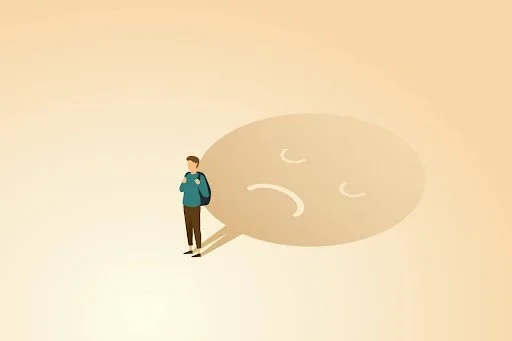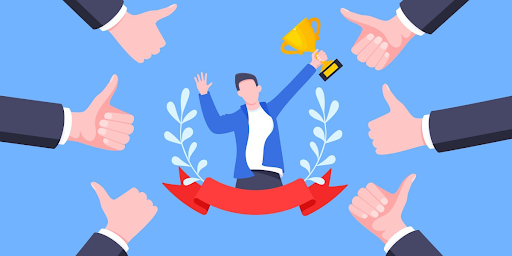Capitalism’s Burnout and Depression
Giovani Vastida
The Achievement Subject
Credit: Unsplash+
“I need to study harder for the next exam…”
“This book will help me improve myself…”
“I’m wasting my time–I need to be doing something productive…”
Byung Chul Han calls “Positive Power” a mindset focused on productivity and self-optimization. “Positive Power” ruthlessly judges all actions as either admirable or lazy. It plants the guilt you feel for being unproductive: preventing you from taking a mental break because of this self-monitoring that intrudes upon your peace of mind. When you are not productive, you are “un-actualized.”
“Positive power” will always worry you into excessive productivity and even excessive positivity about the possibility of your goals if you just keep working at them. To Han, this is the linchpin to our self-constructed Achievement Society: a society that judges you based on your accolades, degrees, or anything that adds “value” to your self-worth. After all, if life presents infinite possibilities to succeed, then why not become the absolute best? “Unlimited potential” is restricted only by “internal limitations and self-constraints.” You CAN become anything and everything your wildest dreams conjure up. Therefore, shoot for the highest achievements you can dream of and never settle for “mediocrity”.
Capitalism (more specifically: neoliberalism) and the Achievement Society that it has created produces narcissists endlessly striving for their titles, awards, and status. Narcissists take positive power to its extreme, accepting that everyone is a project to be constantly improved. Many fall into narcissism because it attracts so many to the societal recognition that we endlessly strive for.
“As a project deeming itself free of external and alien limitations, the I is now subjugating itself to internal limitations and self-constraints, which are taking the form of compulsive achievement and optimization” -Byung Chul Han; Psychopolitics–Ch.1 “The Exploitation of Freedom”
This striving to be the best intensifies when you mix the West’s hyper-individualism–leading to societies that become free-for-alls. Individuals become obsessed with self-recognition and recognition from others in our Achievement Society which values titles, awards, and status. According to Han, the same obsession with increasing one’s “worth” is how positive power drives us to self-exploit into depression and burnout. Han particularly emphasizes that “freedom itself, which is supposed to be the opposite of constraint, is producing coercion”. When you combine the self-monitoring of positive power with capitalism’s "unlimited potential" ideology, you essentially self-exploit to achieve your goals. Symbolically, a pair of eyeballs that invade your psyche for productivity is bound to lead to burnout, shame, or depression. The inevitable “shortcomings” or “failures” will undermine your “value” or belief in accomplishing the impossible.
Credit: Lee Nallalingham
When this incessant push for achievement and success becomes too much, individuals burn out and fizzle into depression. Understandably, nearly half (48%) of 18-to-29-year-olds said they feel drained compared with 40% of their peers aged 30 and up, while women (46%) reported higher levels of burnout than men (37%). To fail in this Achievement Society or otherwise not prosper is to “see themselves as responsible for their (shortcomings) and feel shame instead of questioning society or the system”. Because we operate as individual “projects” to be constantly improved upon, the self-exploitation of positive power turns our aggression against ourselves– leaving many of us inclined towards depression rather than demands for a social project for real change
.Credit: VectorStock
Google “failure” and the results will remind you how much others failed before they succeeded: Michael Jordan was cut from his high school basketball team, Walt Disney was fired from a newspaper because the editor felt he "lacked imagination and had no good ideas;" Albert Einstein was turned down by many universities and even expelled from his first school. Enter any bookshop and take your pick from the endless self-help books that tell you to push yourself– that the only one stopping your dreams is you!
“In contemporary American self-help literature, the magic word is healing. The term refers to self-optimization that is supposed to therapeutically eliminate any and all functional weakness or mental obstacle in the name of efficiency and performance.” -Byung Chul Han; Psychopolitics–Ch.6 “Healing as Killing”
All of these examples show us that positive power is strong at work and reinforced everywhere around us. All shortcomings are merely bumps in the road that should not dissuade you from your goals. Yet, what if these success stories are merely a form of survivorship bias? You can find thousands of American Dream success stories yet we never hear of the many more failed American Dreams. John Steinbeck was once paraphrased in saying that, “socialism never took root in America because the poor see themselves not as exploited workers but as temporarily embarrassed millionaires” in the interlude before achieving their long-awaited riches and success.
What is to be done against positive power?
Firstly, we must be aware that the “power” in “positive power” guides almost all of us in our decision-making, priorities, and values in life. Whether embracing positive power as a narcissist or submitting to it, simply recognizing its presence is a step in the right direction. This awareness can create the space for individuals to reflect on their habits and mentality.
Am I pushing myself too hard?
Are my goals my own, or someone else’s?
Am I being fair to myself?
Simone Biles, a highly decorated American gymnast famously pulled out of the 2020 Summer Olympics, citing mental health concerns. Several commentators criticized her “quitting” and Charlie Kirk, an American conservative personality, even went as far as to call her a “selfish sociopath”, further adding that “We are raising a generation of weak people like Simone Biles–if she's got all these mental health problems: don't show up". Simultaneously, she garnered widespread support for her simple decision to put herself first over the immense pressure put on her to perform at the Olympics. In many ways, she reignited the conversation of prioritizing one’s well-being over achievements.
The end goal is a clear demarcation of healthy productivity and incessant positive power narcissism. Furthermore, we must open this conversation up to others around us who may be pushing themselves too hard in their everyday lives. Both burnout and depression can be difficult to spot in others at times because of how well we have trained ourselves to keep pushing forward without complaints. Never be afraid to push away positive power for yourself, your loved ones, and the world around you.
Credit:Freepik
“Beware of destination addiction, a preoccupation with the idea that happiness is in the next place, the next job, and with the next partner. Until you give up the idea that happiness is somewhere else, it will never be where you are.”
– Robert Holden
———————————————————————————
NOTES
[1] https://futureforum.com/research/future-forum-pulse-winter-2022-2023-snapshot/
This Future Forum Pulse surveyed 10,243 workers in the U.S., Australia, France, Germany, Japan, and the U.K.




